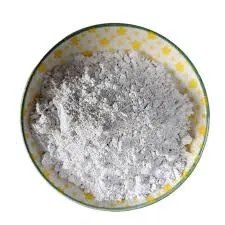- Afrikaans
- Albanian
- Amharic
- Arabic
- Armenian
- Azerbaijani
- Basque
- Belarusian
- Bengali
- Bosnian
- Bulgarian
- Catalan
- Cebuano
- Corsican
- Croatian
- Czech
- Danish
- Dutch
- English
- Esperanto
- Estonian
- Finnish
- French
- Frisian
- Galician
- Georgian
- German
- Greek
- Gujarati
- Haitian Creole
- hausa
- hawaiian
- Hebrew
- Hindi
- Miao
- Hungarian
- Icelandic
- igbo
- Indonesian
- irish
- Italian
- Japanese
- Javanese
- Kannada
- kazakh
- Khmer
- Rwandese
- Korean
- Kurdish
- Kyrgyz
- Lao
- Latin
- Latvian
- Lithuanian
- Luxembourgish
- Macedonian
- Malgashi
- Malay
- Malayalam
- Maltese
- Maori
- Marathi
- Mongolian
- Myanmar
- Nepali
- Norwegian
- Norwegian
- Occitan
- Pashto
- Persian
- Polish
- Portuguese
- Punjabi
- Romanian
- Russian
- Samoan
- Scottish Gaelic
- Serbian
- Sesotho
- Shona
- Sindhi
- Sinhala
- Slovak
- Slovenian
- Somali
- Spanish
- Sundanese
- Swahili
- Swedish
- Tagalog
- Tajik
- Tamil
- Tatar
- Telugu
- Thai
- Turkish
- Turkmen
- Ukrainian
- Urdu
- Uighur
- Uzbek
- Vietnamese
- Welsh
- Bantu
- Yiddish
- Yoruba
- Zulu
Nov . 17, 2024 21:59 Back to list
Ivermectin 1% Injectable Solution for Goat Health and Parasite Management
Ivermectin 1% Injectable for Goats An Overview
Ivermectin is a widely recognized antiparasitic agent that has been utilized effectively in both human and veterinary medicine. In the realm of livestock management, particularly in goats, Ivermectin 1% injectable solution has emerged as a vital drug in the control and prevention of various parasitic infections. Understanding its use, effectiveness, and safety is essential for goat farmers and veterinarians alike.
What is Ivermectin?
Ivermectin belongs to the class of drugs known as macrocyclic lactones. It works by binding to specific chloride channels in the nervous system and muscle cells of parasites, leading to paralysis and death of the organisms. This mechanism of action makes it effective against a broad range of internal and external parasites, including gastrointestinal worms, lungworms, and ectoparasites such as mites and lice.
Indications for Use
Ivermectin 1% injectable for goats is primarily indicated for the treatment and control of various parasites. This includes effective management of - Gastrointestinal nematodes These are intestinal worms that can cause significant health issues in goats if left untreated. - Lungworms Respiratory parasites that can lead to coughing, difficulty in breathing, and overall poor health. - Ectoparasites Such as mites, ticks, and lice, which can cause skin irritation and other related problems.
ivermectin 1 injectable for goats

Administration Guidelines
The administration of Ivermectin 1% injectable should be done carefully, following the manufacturer’s guidelines. The typical dosage for goats is 0.2 mg/kg of body weight, administered subcutaneously or intramuscularly. It is important to ensure that the injection is delivered correctly to maximize efficacy and minimize discomfort for the animal.
Safety and Precautions
Ivermectin is generally considered safe for use in goats when administered at the recommended dosage. However, there are a few precautions to consider - Withdrawal Period Goat farmers must adhere to the withdrawal periods before slaughter or before milk can be sold. Ivermectin has a specified withdrawal time to ensure that residues do not remain in meat or milk, which could pose health risks to consumers. - Pregnant and Lactating Goats Though Ivermectin is sometimes used in pregnant and lactating goats, it is crucial to consult a veterinarian for advice tailored to specific circumstances. - Individual Responses Just like humans, animals can have individual responses to medications. Observing goats after administration is essential in case of adverse reactions.
Conclusion
Ivermectin 1% injectable for goats presents an invaluable tool for managing parasitic infections effectively. By understanding its application, potential side effects, and proper administration, goat farmers can significantly improve the health and productivity of their herds. Regular veterinary consultation and adherence to dosage guidelines will ensure not only the efficacy of the treatment but also the well-being of the animals. As the livestock industry continues to evolve, keeping abreast of the best practices regarding health management will pave the way for sustainable and profitable goat farming.
-
Guide to Oxytetracycline Injection
NewsMar.27,2025
-
Guide to Colistin Sulphate
NewsMar.27,2025
-
Gentamicin Sulfate: Uses, Price, And Key Information
NewsMar.27,2025
-
Enrofloxacin Injection: Uses, Price, And Supplier Information
NewsMar.27,2025
-
Dexamethasone Sodium Phosphate Injection: Uses, Price, And Key Information
NewsMar.27,2025
-
Albendazole Tablet: Uses, Dosage, Cost, And Key Information
NewsMar.27,2025













